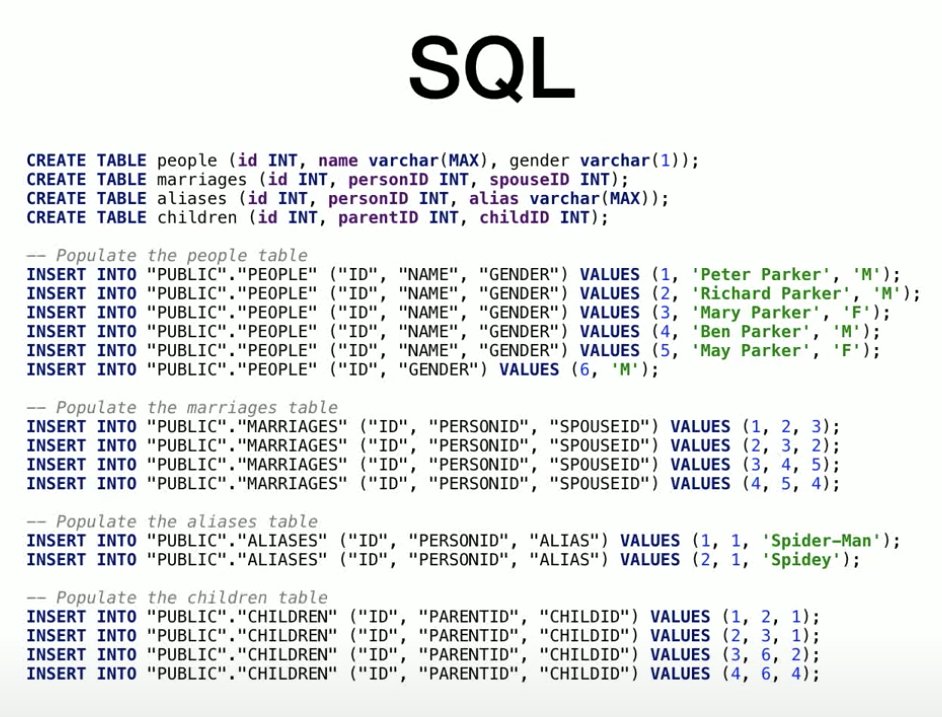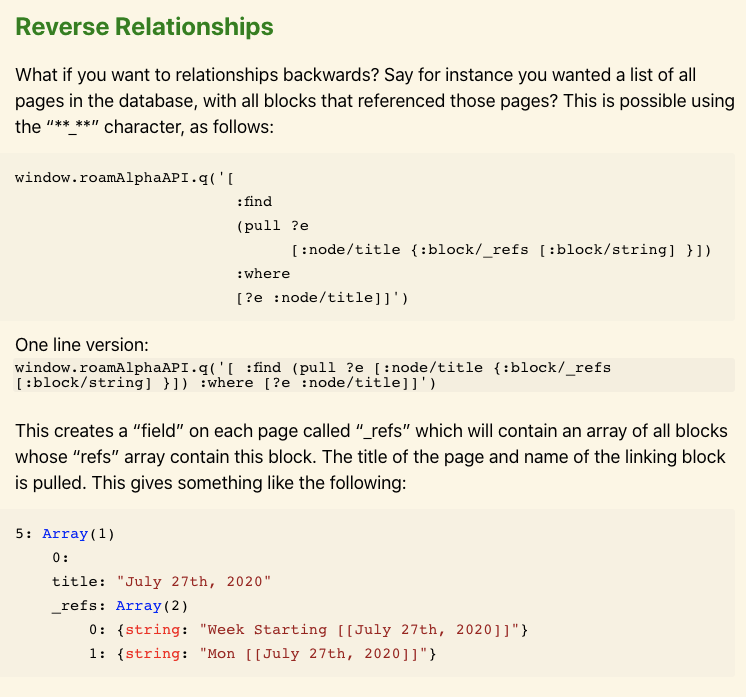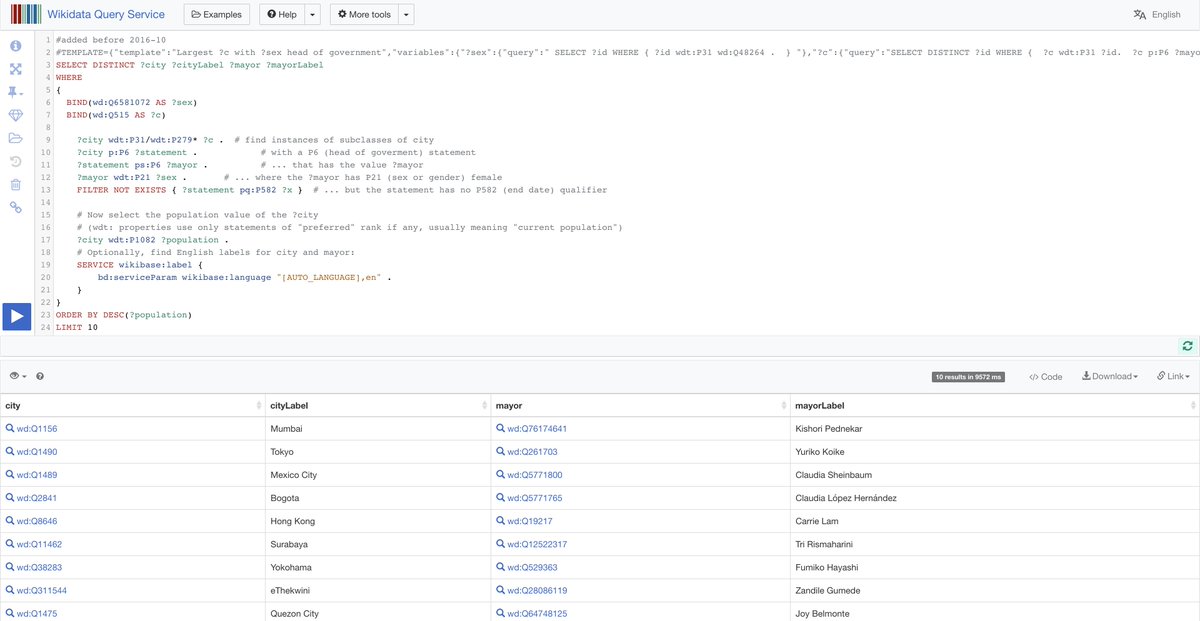
For people curious about the Roam API and confused by the syntax, or interested in why Conor went with Datomic/Datascript and not a traditional database, this older talk by Roam developer @mark_bastian is a great overview.


You should be able to model the entire Spiderman story in Roam.
Page title: Peter Parker
Child of:: [[Richard Parker]] [[Mary Parker]]
Aliases:: [[Spidey]]
etc, and do these kind of queries.
"Show me companies in Boise, Idaho, founded by women, whose evaluation is lower than 10X ARR"
"Show me a graph of my sleep quality versus days in which I ate foods that had gluten in them or not" (where [[bread]] has a page with ingredients::).





















